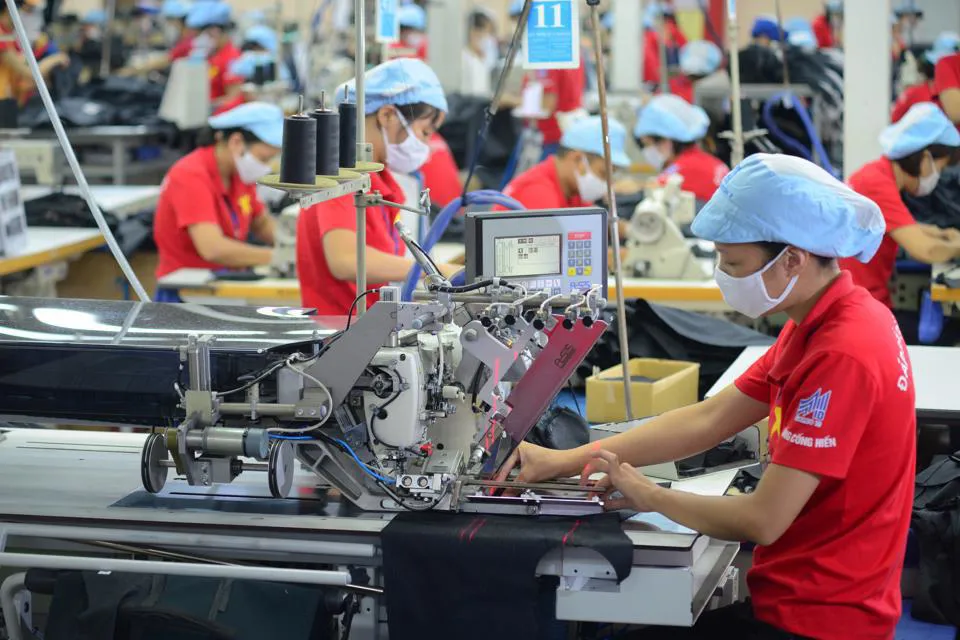Inflation seen as key near-term challenge for Vietnam’s economy: HSBC
Over the past month, 10 out of 11 major consumer goods categories saw price increases.
Vietnam should closely monitor near-term inflation amidst slowing domestic purchasing power, according to HSBC in its latest economic report on Vietnam.
| Production at Garment 10 Company. Photo: Khac Kien/The Hanoi Times |
Data from the General Statistics Office revealed that the Consumer Price Index (CPI) last month rose by 4.44% year-on-year. This inflation rate is nearing the 4.5% ceiling set by the State Bank of Vietnam (SBV), a situation that warrants attention, HSBC said.
Over the past month, 10 out of 11 major consumer goods categories recorded price increases. The fastest-growing sectors include education, healthcare, construction, and food. A closer analysis reveals a more complex picture.
Specifically, while rice prices in May decreased compared to the previous month, pork prices surged, driving overall food prices up. Although oil prices fell, electricity prices rose. "This points to a multifaceted scenario in the food and energy sectors that requires close monitoring in the short-term," the report said. For the first five months of the year, the CPI increased by 4.03%, primarily driven by rising prices in education, healthcare, housing, and entertainment sectors, according to the General Statistics Office.
Part of the inflationary pressure stems from input costs. Vietnam's high degree of economic openness, makes it vulnerable to global commodity fluctuations, according to HSBC. Last week, the Purchasing Managers' Index (PMI) survey by S&P Global indicated that companies raised their selling prices in May for the first time since February.
This increase is due to Vietnamese manufacturers facing higher input costs, driven by the depreciation of the VND against the USD, along with higher fuel and material costs. "The main factor driving up import prices is the weaker VND," explained Yun Liu, an economist covering ASEAN markets at HSBC Global Research.
Recently, exchange rate fluctuations due to persistently high US interest rates have led the State Bank of Vietnam (SBV) to adopt a more proactive stance in managing foreign exchange pressures through more flexible open market operations and adjustments to refinancing rates.
HSBC expects the SBV to keep its policy rates stable as the economic recovery is still in its early stages, requiring a delicate balance in monetary policy.











